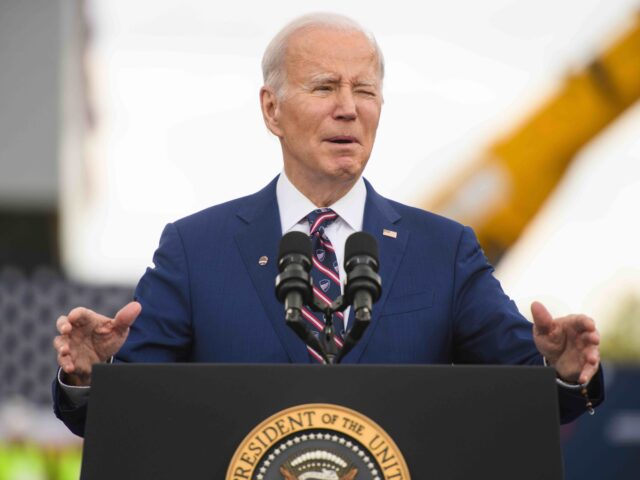President Joe Biden said Tuesday that he would not invite Israeli Prime Minister Benjamin Netanyahu to the White House, contradicting an explicit promise made earlier in the day by U.S. Ambassador Tom Nides.
Biden framed his refusal as a response to Netanyahu’s proposed judicial reforms, which aim to increase the power of the legislature, such as allowing it to approve judges (as the Senate does in the United States).
Netanyahu paused his reforms on Monday to allow more time for negotiation with the left-wing opposition. In response, Ambassador Nides said that Biden would extend a long-awaited invitation to Netanyahu to visit.
The Times of Israel reported:
“I’m sure he’ll be coming relatively soon,” Nides told Israel’s Army Radio. “I assume after Passover, obviously no date has been set yet. There’s no question he will come and meet [US President Joe] Biden. They will see each other personally, I’m sure, quite soon. Without question, he’ll be coming to the White House as soon as their schedules can be coordinated.”
But Biden later told reporters that there would be no such invitation: “No. Not in the near term.”
He also said: “Like many strong supporters of Israel, I’m very concerned, and I’m concerned that they get this straight. They cannot continue down this road. And I thought I made that clear. And I — hopefully the prime minister is going to act in a way that he’s going to try to work out some genuine compromise. But that remains to be seen.
Netanyahu responded on Twitter that Israel would not bow to pressure, even from “friends” like Biden:
As Breitbart News noted in early January, the reforms would make Israel’s judiciary more like that of the U.S.:
The reforms, unveiled by Israel’s justice minister, Yariv Levin, consist of four basic legislative components:
- Restricting the power of judicial review by requiring a full panel of Israel’s 15-member Supreme Court to strike down legislation passed by the elected legislature, or Knesset;
- Allowing the Knesset to override a decision by the Supreme Court to strike down legislation by letting it pass the same legislation again;
- Removing the power to select judges from an independent commission and giving it to the government;
- Allowing government agencies to appoint their own legal advisers instead of relying on the justice ministry to do so.
Many of these reforms already exist under the U.S. Constitution. Judicial review of congressional legislation, for example, is not an unlimited power, and Congress can “override” Supreme Court decisions by amending the Constitution. (Israel does not have a formal constitution; instead, it relies on a set of “Basic Laws.”)
Likewise, judicial appointments in the U.S. are entirely controlled by the government — the president and the Senate.
Netanyahu’s conservative government supports these judicial reforms after decades in which Israel’s judiciary has struck down Knesset legislation on religious matters and micromanaged national security decisions.
The Biden administration openly criticized Netanyahu’s proposed reforms, even though Biden himself has considered “packing” the Supreme Court with liberal justices — a far more radical idea than Israel is debating.
The State Department was also found to be funding one of the left-wing Israeli groups that supported the unruly protests that brought the country to a halt and forced Netanyahu to pause reforms before they passed.
On Sunday, Netanyahu fired his defense minister, who had given an unauthorized speech calling for a stop to the reforms, in reaction to left-wing military reservists refusing to show up for their scheduled duty in protest.
Biden invited each of Netanyahu’s predecessors to visit the White House — Naftali Bennett and Yair Lapid — within weeks after they took office. Netanyahu won the November 2022 election and took office in December.
The Biden administration repeatedly claims it has repaired relations with allies, though it has snubbed Israel and recently lost support from Saudi Arabia, which is forging new relations with Iran under the aegis of China.
Joel B. Pollak is Senior Editor-at-Large at Breitbart News and the host of Breitbart News Sunday on Sirius XM Patriot on Sunday evenings from 7 p.m. to 10 p.m. ET (4 p.m. to 7 p.m. PT). He is the author of the new biography, Rhoda: ‘Comrade Kadalie, You Are Out of Order’. He is also the author of the recent e-book, Neither Free nor Fair: The 2020 U.S. Presidential Election. He is a winner of the 2018 Robert Novak Journalism Alumni Fellowship. Follow him on Twitter at @joelpollak.

COMMENTS
Please let us know if you're having issues with commenting.